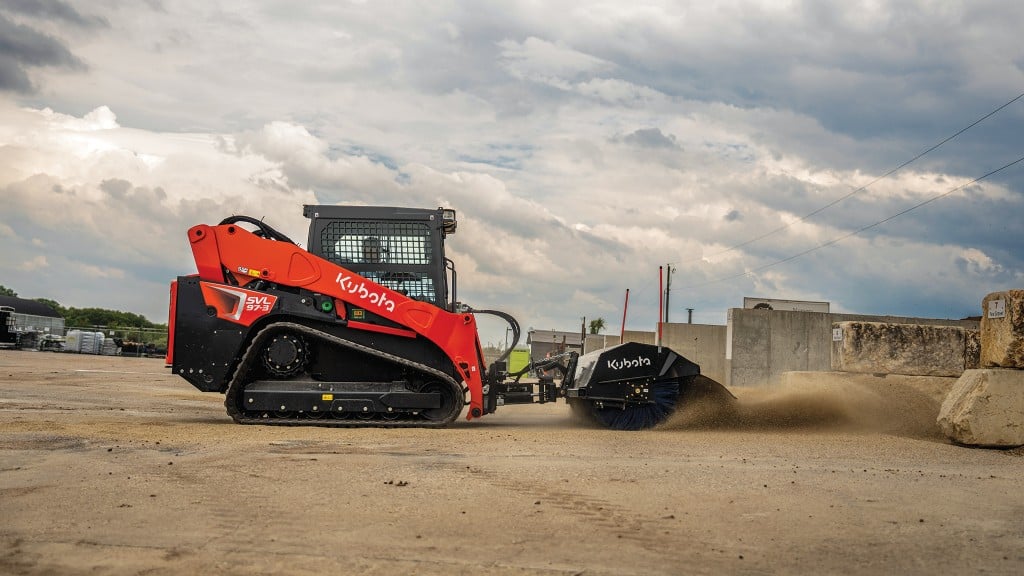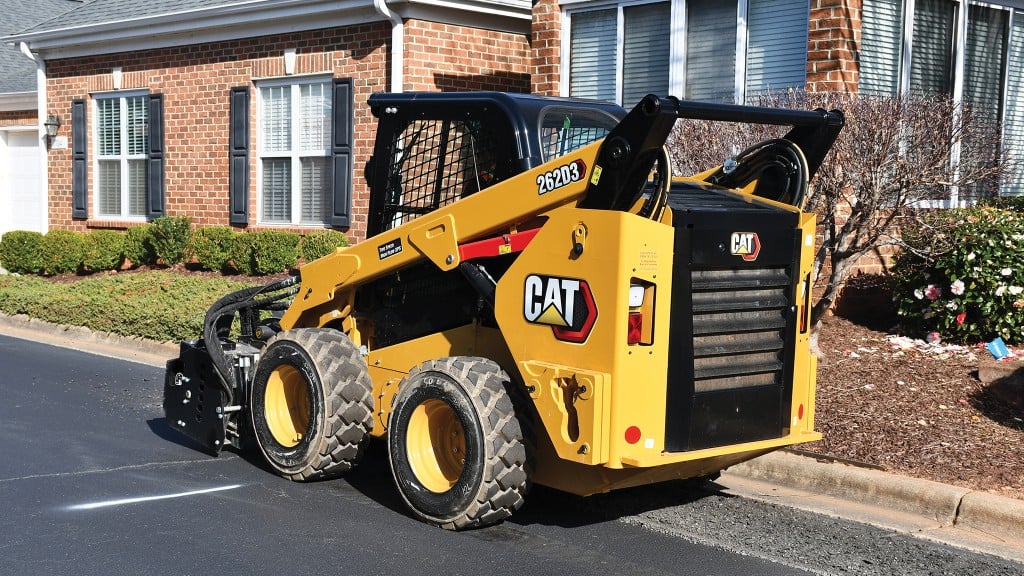Small machines make big impact in road construction
Compact equipment attachment versatility is reliable for roadbuilding

Canadian weather makes roadbuilding one of the steadiest businesses on earth. With harsh winters and freeze-thaw cycles causing damage and potholes, our streets and highways are in constant need of repair.
While construction companies have traditionally relied on heavy machinery for roadwork, compact equipment is beginning to make inroads in the industry.
As Canada's population expands, and cities grow denser, there's a big need for smaller machines with increased manoeuvrability, versatility in tight spaces, lower operational costs, and the ability to access high-traffic areas where 30-ton excavators, dozers, and graders simply cannot reach.
Compact equipment in roadwork
Mini excavators are ideal for urban road construction sites where digging might be required to reroute electrical or sewage, because they can easily navigate narrow spaces between buildings, utility poles, and other obstructions. Excellent in confined areas, mini excavators are also used on large highway projects for digging small trenches and performing precise excavation work in areas heavy machinery can't access.
Compact track loaders (CTLs) and skid steers are even more popular in roadbuilding. Much like wheel loaders, they're often used in big highway projects to haul materials around the job site on pallet forks. However, because both offer a wide range of attachments, they provide much more versatility.
CTLs are perfect when prepping for a job as they don't leave tread marks, float across the surface, and don't disrupt compaction before the pavement goes down. They're excellent in wet or spongy conditions versus a wheeled machine, which could sink, potentially creating unwanted downtime.
Whereas CTLs are a better choice when the worksite is freshly dug up, road builders move materials from point A to point B with skid steers once the job is near completion and everything is mostly paved. Since pavement really eats up tracks, using a CTL at this stage would significantly increase cost of ownership.
Attachments offer incredible versatility
With the right compact equipment and attachments, construction crews can handle road repairs, mill asphalt or concrete, cut trenches, and more, doing everything from removing old driveways, cement pads, sidewalks, or pathways, to preparing the roadway for asphalt or cement.
Equipping a CTL or skid steer with a box blade with 2D Grade control is especially common in roadbuilding and housing developments where it's both difficult and costly to bring in massive motor graders. Grade control on compact equipment offers the same functionality as the larger machinery, with the added benefit of being more economical and easier to operate. Once the operator sets up the system, they don't need to worry about moving the blade up and down, or tilting it left and right to get to the depth or slope they want — the system does it for them.
In smaller spaces or areas where a re-do is required due to an error, construction companies will also use plate compactor attachments to compact the ground and get it ready for paving repair, rather than bring in a heavy road roller. Additionally, breakers are utilized in repaving projects to break up concrete and asphalt, and cold planers are often used in street repairs when levelling pavement and re-doing city sidewalks.
When a project is nearing completion and the majority of pavement is laid, hopper broom attachments are commonly used to remove dirt and debris to keep the job site clean and debris from flying around in the air. Dust suppression kits are a great add-on to keep the dust down.
Roadbuilders benefit from lower operating costs
In addition to offering access to tight spaces and the versatility to take on various tasks such digging, grading, trenching, loading, etc., compact equipment requires less fuel than heavy machinery and reduces transportation costs as it doesn't require a large semi-trailer to move the equipment to different job sites.
Total cost of ownership is incredibly important for any construction company involved in building and maintaining Canadian roads and highways. Purchasing durable and reliable compact equipment will result in lower maintenance bills, ultimately putting more money back in the contractor's pocket.



